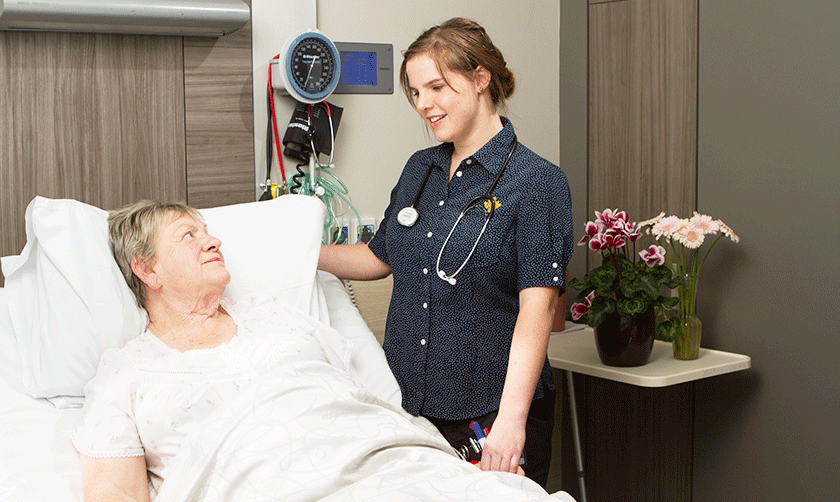- Our services
- Medical and surgical
- Vascular surgery
 Our services
Our services
- Medical and surgical
-
- Allied health
- Cardiac rehabilitation
- Falls prevention and balance
- Chronic disease management
- Exercise physiology
- Inpatient rehabilitation
- Nutrition and dietetics
- Occupational therapy
- Oncology rehabilitation
- Orthopaedic rehabilitation
- Outpatient rehabilitation
- Pulmonary rehabilitation
- Physiotherapy
- Reconditioning rehabilitation
- Speech pathology
- Social work
- Community and youth
- Healthcare at Home
- Self-funded care
Vascular surgery

Vascular diseases range from non-life-threatening conditions such as varicose veins through to more serious conditions such as aneurysms and blocked blood vessels to the brain.
Our experienced caregivers are here to support you from admission through to recovery and address any questions or concerns your may have about your vascular surgery.
Vascular services
Our vascular surgeons work with nurses, anaesthetists and other specialists as a multidisciplinary team to provide the highest level of care. Our surgeons perform a range of surgeries from vein surgery through to aortic, carotid and bypass operations.
General anaesthetic is occasionally required for major endovascular cases.
Your surgeon may also use other non-invasive techniques such as ultrasounds and CT scans or MRI scans. Your treating doctor will let you know which investigation and procedure is right for you.
Your recovery
Once your surgery is over, you’ll be transferred to a recovery room or directly to the ward for ongoing observation. We are committed to making your recovery as comfortable and as stress-free as possible.
When you are discharged, your doctors, nurses and allied health practitioners may advise you to make some lifestyle changes such as quitting smoking, changing your diet and managing your medications to ensure you have a plan for returning to optimum health.
Benefits of vascular surgery
Successful vascular surgery can result in:
- improved blood flow and wound healing
- reduced levels of pain and swelling
- reduced risk of stroke and aneurysm rupture
- reduced risk of amputation
- improved levels of mobility
- better quality of life.
These benefits depend on your particular circumstances and require you to fully participate in necessary before and after care and management. You should consult a specialist in this area before deciding whether surgery is suitable for you.
You may be interested in...
